Brassicasterol
Synonym(s):24-Methyl cholest-5,22-dien-3β-ol;5,22-Cholestadien-24β-methyl-3β-ol
- CAS NO.:474-67-9
- Empirical Formula: C28H46O
- Molecular Weight: 398.66
- MDL number: MFCD00201659
- EINECS: 207-486-5
- SAFETY DATA SHEET (SDS)
- Update Date: 2024-08-02 18:12:07
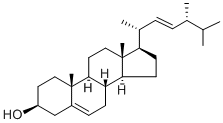
What is Brassicasterol?
The Uses of Brassicasterol
Brassicasterol was used as standard to analyze the sterols from mussels sample by thin layer chromatography.
The Uses of Brassicasterol
A phytosterol found in canola oil, rapeseed oil, marine algae and shellfish. This compound has been shown to inhibit sterol Δ24-reductase, an enzyme involved in the mammalian cholesterol biosynthesis pathway.
What are the applications of Application
Brassicasterol is inhibit sterol Δ24-reductase
Definition
ChEBI: Brassicasterol is an 3beta-sterol that is (22E)-ergosta-5,22-diene substituted by a hydroxy group at position 3beta. It is a phytosterol found in marine algae, fish, and rapeseed oil. It has a role as an EC 1.3.1.72 (Delta(24)-sterol reductase) inhibitor, a biomarker, a human metabolite, a plant metabolite, an animal metabolite, an algal metabolite, a sterol biosynthesis inhibitor and a marine metabolite. It is an ergostanoid, a 3beta-sterol, a member of phytosterols and a 3beta-hydroxy-Delta(5)-steroid.
General Description
Brassicasterol is a plant sterol, sharing similar structure with cholesterol. It is obtained through the dietary sources, including sea food.
Biochem/physiol Actions
Brassicasterol is a plant sterol, structurally similar to cholesterol. Plant sterols compete with cholesterol and reduce the content of cholesterol incorporated into micelles thereby reducing its absorption. Brassicasterol reportedly decreases the progression of atherosclerosis. The level of brassicasterol in cerebrospinal fluid may be used as a prognostic factor for progression of Alzheimer′s disease.
Side Effects
Plant sterols are LIKELY SAFE for most people when taken by mouth. They can cause some side effects, such as diarrhea or fat in the stool.
Precautions
Sitosterolemia, a rare inherited fat storage disease: Plant sterols can build up in the blood and tissue of people with this condition. This build-up can make these people prone to early heart disease. Taking plant sterols might make this condition worse. Don't take plant sterols if you have sitosterolemia.
Short bowel syndrome, a condition related to removal of part of the gut: Worsening of liver function has been reported for a person with short bowel syndrome who was given nutrients containing plant sterols. Liver function improved when the plant sterols were removed from the nutrients. It's not clear if the plant sterols were responsible. Until more is known, don't take plant sterols if you have short bowel syndrome.
Properties of Brassicasterol
| Melting point: | 205-213℃ |
| Boiling point: | 488.7±14.0 °C(Predicted) |
| Density | 0.99±0.1 g/cm3(Predicted) |
| storage temp. | 2-8°C |
| solubility | Chloroform (Slightly), Ethyl Acetate (Slightly), Methanol (Slightly) |
| form | Solid |
| pka | 15.03±0.70(Predicted) |
| color | White to Off-White |
Safety information for Brassicasterol
Computed Descriptors for Brassicasterol
| InChIKey | OILXMJHPFNGGTO-FFCHNKSWNA-N |
| SMILES | [C@@]12([H])CC[C@H]([C@H](C)/C=C/[C@H](C)C(C)C)[C@@]1(C)CC[C@]1([H])[C@@]3(C)CC[C@H](O)CC3=CC[C@@]21[H] |&1:0,4,5,9,14,18,20,24,30,r| |
Abamectin manufacturer
Venkatasai Life Sciences
New Products
4-AMINO-TETRAHYDRO-PYRAN-4-CARBOXYLIC ACID HCL 4-(Dimethylamino)tetrahydro-2H-pyran-4-carbonitrile 4-Aminotetrahydropyran-4-carbonitrile Hydrochloride (R)-3-Aminobutanenitrile Hydrochloride 3-((Dimethylamino)methyl)-5-methylhexan-2-one oxalate 1,4-Dioxa-8-azaspiro[4.5]decane 5-Bromo-2-nitropyridine Nimesulide BP Aceclofenac IP/BP/EP Diclofenac Sodium IP/BP/EP/USP Mefenamic Acid IP/BP/EP/USP Ornidazole IP Diclofenac Potassium THOMAIND PAPER PH 2.0 TO 4.5 1 BOX BUFFER CAPSULE PH 9.2 - 10 CAP SODIUM CHLORIDE 0.1N CVS ALLOXAN MONOHYDRATE 98% PLATINUM 0.5% ON 3 MM ALUMINA PELLETS (TYPE 73) LITHIUM AAS SOLUTION 2-Bromo-1-(bromomethyl)-3-chloro-5-nitrobenzene 2-Bromo-3-nitroaniline N-(3-Hydroxypropyl)-N-methylacetamide 3-Bromo-6-chloropyridazine 4-ethyl-3-nitrobenzoic acidRelated products of tetrahydrofuran




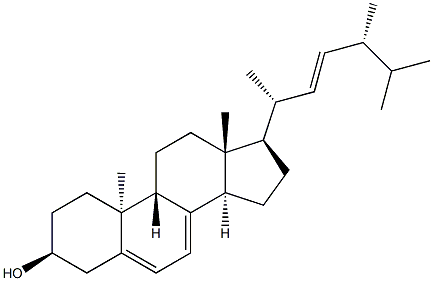


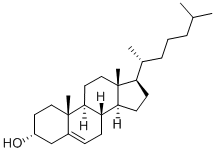
You may like
-
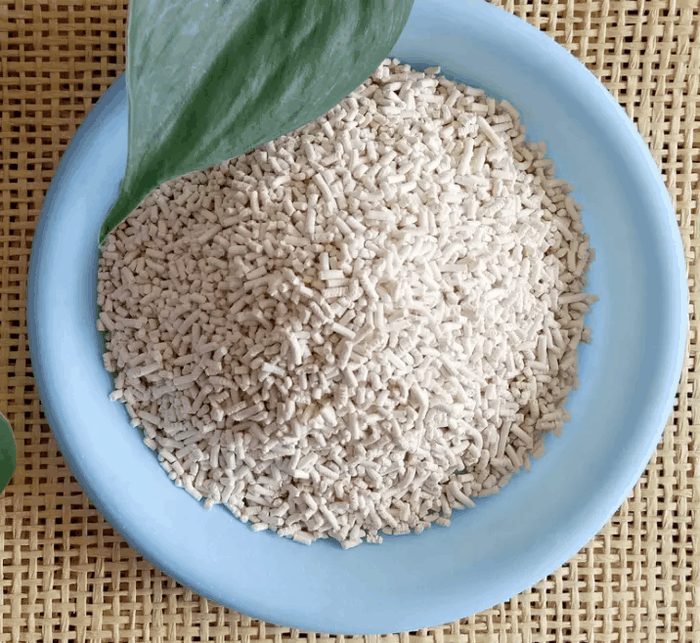 474-67-9 Brassicasterol 99%View Details
474-67-9 Brassicasterol 99%View Details
474-67-9 -
 Brassicasterol CAS 474-67-9View Details
Brassicasterol CAS 474-67-9View Details
474-67-9 -
 Brassicasterol CAS 474-67-9View Details
Brassicasterol CAS 474-67-9View Details
474-67-9 -
 1823368-42-8 98%View Details
1823368-42-8 98%View Details
1823368-42-8 -
 2-(3-(tert-butyl)phenoxy)-2-methylpropanoic acid 1307449-08-6 98%View Details
2-(3-(tert-butyl)phenoxy)-2-methylpropanoic acid 1307449-08-6 98%View Details
1307449-08-6 -
 Ethyl 3-(furan-2-yl)-3-hydroxypropanoate 25408-95-1 98%View Details
Ethyl 3-(furan-2-yl)-3-hydroxypropanoate 25408-95-1 98%View Details
25408-95-1 -
 2-Chloro-5-fluoro-1-methoxy-3-methylbenzene 98%View Details
2-Chloro-5-fluoro-1-methoxy-3-methylbenzene 98%View Details
1805639-70-6 -
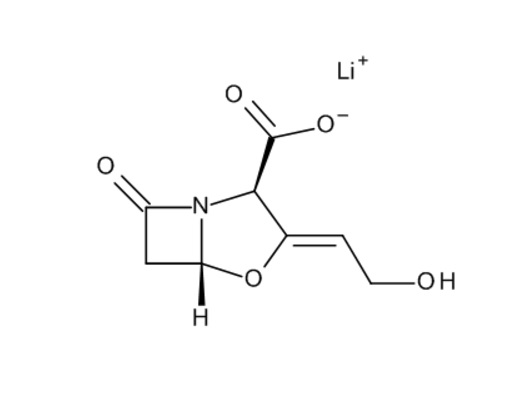 Lithium ClavulanateView Details
Lithium ClavulanateView Details
61177-44-4